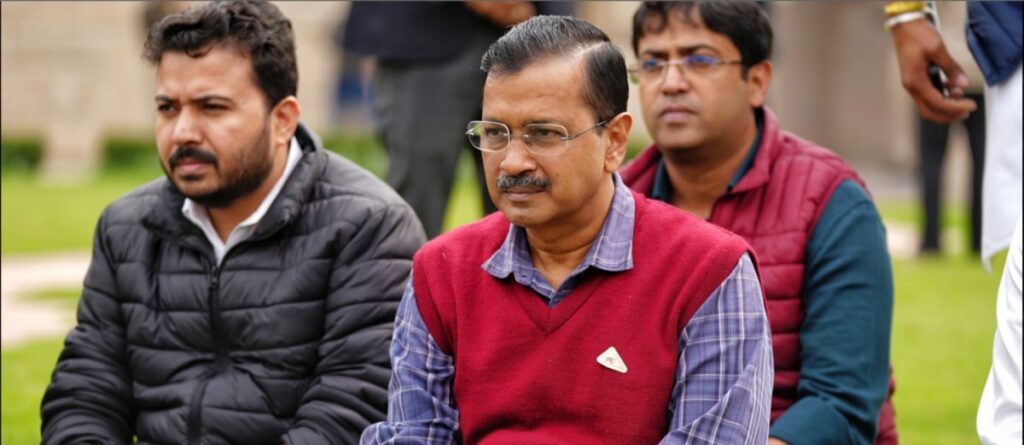New Delhi: The Supreme Court on Thursday (September 5) reserved its judgement on Delhi chief minister Arvind Kejriwal’s petitions for bail in the CBI case against him as well as challenging his arrest by the agency.
A two-judge bench comprising Justices Surya Kant and Ujjal Bhuyan heard arguments made by Kejriwal’s counsel Abhishek Manu Singhvi and the CBI’s counsel, additional solicitor general S.V. Raju, in the matter linked to the Delhi liquor policy case.
According to LiveLaw, Singhvi questioned how Kejriwal could be denied bail in the CBI case against him – where the Prevention of Corruption Act has been invoked – when he has already been bailed in the Enforcement Directorate (ED)’s case against him in the liquor policy matter, where the more stringent anti-money laundering law is involved.
The CBI, which is probing corruption allegations in the liquor policy case, arrested Kejriwal on June 25. The Delhi high court upheld his arrest last month, following which the chief minister approached the apex court for relief.
In March this year, shortly before the general election began, the ED arrested Kejriwal in its money laundering case in the matter. The Supreme Court gave him interim bail once during the election and the second time in July.
Singhvi noted that two years had passed between the CBI registering the case in 2022 and arresting Kejriwal in June this year, alleging that its detaining the chief minister constituted an “insurance arrest”, LiveLaw reported.
He also argued that Kejriwal being a “constitutional functionary” was not a flight risk and that evidence in the case, which is documentary nature, had already been collected.
Upon Singhvi’s contention that the CBI did not serve a notice to Kejriwal under the Code of Criminal Procedure when it sought to interrogate him in the ED’s custody, Raju responded that this argument was a “technicality”, the Indian Express reported.
Matters of liberty cannot be a technicality … what I am referring to are procedural safeguards,” the newspaper quotes Singhvi as retorting.
Raju also argued that Kejriwal should have approached the trial court for bail before approaching the high court, but Singhvi said it would be unfair to send him to the trial court at this stage as relevant arguments had already been made before it, Bar and Bench reported.
The additional solicitor general also said that releasing Kejriwal at this time would cause witnesses in the case from Goa to turn hostile.
“They never came to give statements as long as he was not arrested. After he was arrested, they gave statements … Now, after he comes out, all those witnesses will turn hostile,” the Express quoted him as saying.
It is alleged that Kejriwal and his Aam Aadmi Party used funds from the so-called Delhi liquor policy scam to fund the party’s campaign for the 2022 Goa assembly polls.
When Raju contested that the apex court’s granting bail to Kejriwal would demoralise the high court, Justice Bhuyan said according to LiveLaw: “How is that demoralising? Don’t say that! How can it be?”
Raju said he was referring to Kejriwal’s bail plea not including material from the chargesheet filed against him in the case.
Kejriwal’s arrest came after several top leaders of his party, including Delhi deputy CM Manish Sisodia, had already been held in connection with the case, prompting allegations of vendetta politics and suppression of the opposition by the Modi dispensation.
The ED and the CBI allege that Kejriwal’s Aam Aadmi Party government granted liquor licenses to certain traders in exchange for bribes. The policy has been scrapped.

